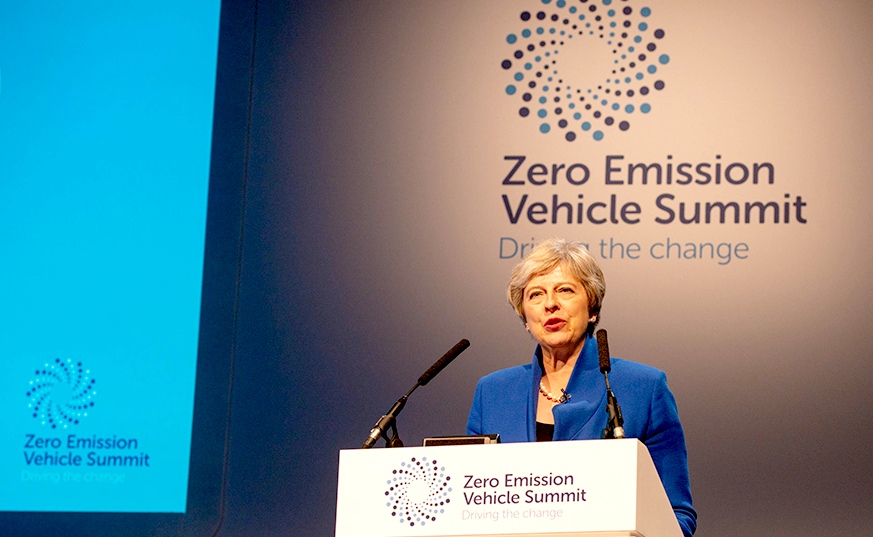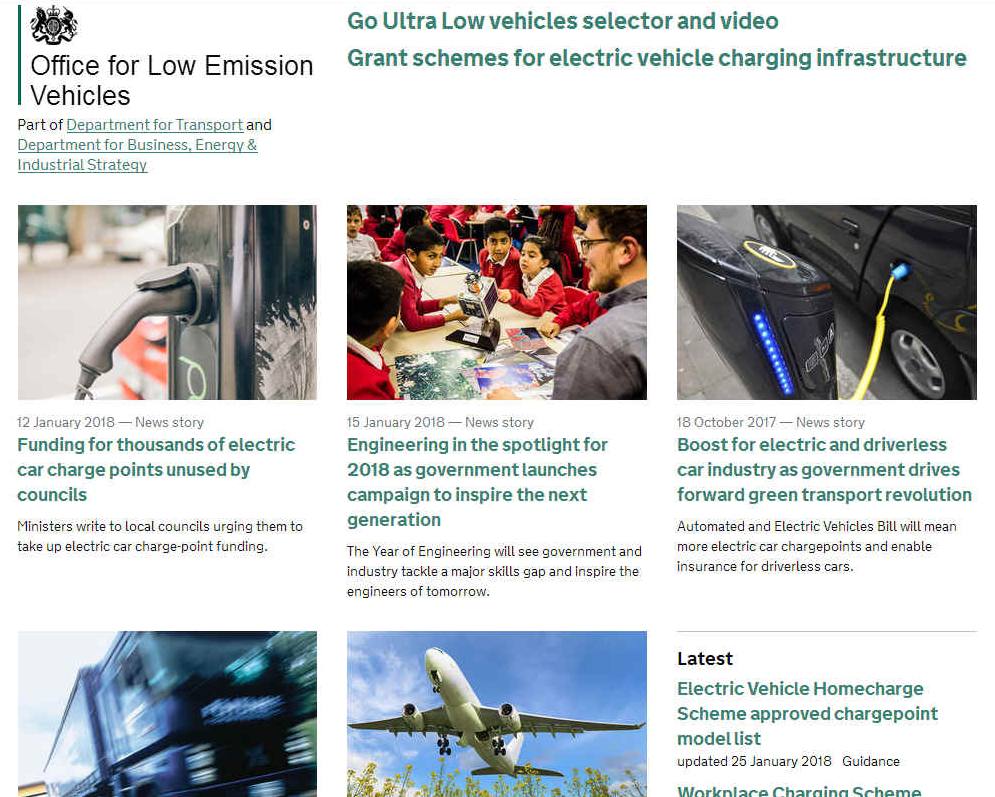|
OZEV FUNDING COMPETITION SUMMARY
Please use our A-Z INDEX to navigate this site where page links may lead to other sites, or see HOME
|
|
|
Theresa May in 2018, kicked the ball into touch with her plan for a cleaner Britain and sustainable motoring, without giving details, so attracting some criticism. Since then, from 2030 the Conservative government has banned the sale of diesel and petrol cars from 2030, with a requirement for zero emission vehicles by 2035.
Transitioning towards Zero Emission Vehicles: feasibility studies
- Onboard
The aim of such competitions is to fill the gaps in the present UK administration's knowledge, and generate new tech to be able to deliver a solution. They use the collaborative research heading, as a means to take know-how out of the control of individuals and corporations, and share that information as a kind of open-source pool, where the patent system is the exact reverse. The carrot is up to 70% funding support. Useful for big corporations, a potential insolvency snare for start ups, where the downside is an effective loss of control of projects, given the conditions attaching.
Regardless of that, it is still a helping hand, provided that you have the admin machinery in place to cope with the accelerated pace.
SUMMARY - ELIGIBILITY - SCOPE - HOW TO APPLY - SUPPORTING INFORMATION
CALL
(COMPETITION) SUMMARY
The
programme is basically, a carrot to entice would be innovative entrepreneurs
to commit to a course of development, where they would otherwise run a mile,
in the face of obvious financial ruin. The (match) funding rates are the
same for Feasibility and Collaborative R&D, but not suitable for
start-ups in the face of a considerable match funding requirement, and 'Not
for Profits' may not lead.
1.
collaborative research and development projects
(different funding rates)
On
the other hand, you may be comfortable or of independent means, and don't
care if your work is rewarded equitably. Few are in that enviable position.
Project size: Your projectís total eligible costs between £300,000 and £600,000.
RESEARCH AT OZEV
Supporting emerging technologies which the UK can exploit and lead globally, where full commercial funding is not otherwise available.
- increase and accelerate the introduction of zero emission vehicles by addressing challenges and barriers
- help the UK reduce CO2 and other emissions caused by road transport
The OZEV's set competitions to fund collaborative research and development. The scope and criteria is created with input from a wide range of stakeholders. Project bids are assessed independently by a panel of industry experts and are required to be co-funded by the private sector.
WHAT IS A ZEV?
In our view, a zero emission vehicle is one that creates as little carbon dioxide and other greenhouse gases, to include the carbon footprint of manufacturing the vehicles and providing the fuel for an effective infrastructure that is sustainable. It's a tall order, where internal combustion engines could be zero emission at the exhaust pipe using green hydrogen, except for the appalling conversion efficiency, ongoing service requirement and short mechanical lifetime of reciprocating engines that need frequent lubricating oil/filter changes, etc.
That steers us towards electric vehicles, with their much reduced servicing requirement, given that all vehicles need tyres, brakes, lights and wipers, replaced at regular intervals to obtain an MOT clean bill of health every years after 3 years from manufacture. And that brings us to batteries.
Batteries
offer a brilliant way of storing energy, most recently with lithium as the
active ingredient, sufficient to conquer useful ranges that lead-acid,
nickel formulations could not provide, but though useful for local domestic
drivers, lithium ranges fall short of the ranges that many fleet operators
need for deliveries of goods. Partly, this is to do with a lack of charging
infrastructure, and partly to do with relatively long recharging times, that
take a vehicle out of service for 2 - 4 hours or more. Given that ultra-fast
charging is a future possibility. Such a feature may not only reduce battery
life, but also strain the National
Grid to breaking point.
LINKS & REFERENCE
https://www.innovateukedge.ukri.org/Exploit-business-innovation-grow-and-scale
DUAL FUEL - Service stations like that above, are not needed for the proposed onboard range extending kits for trucks and vans, but in the longer term such off-board facilities could provide the infrastructure solution to comply with the Automated and Electric Vehicles Act 2018.
Please use our A-Z INDEX to navigate this site
This website is provided on a free basis as a public information service. copyright © Climate Change Trust 2021. Solar Studios, BN271RF, United Kingdom.
| |



